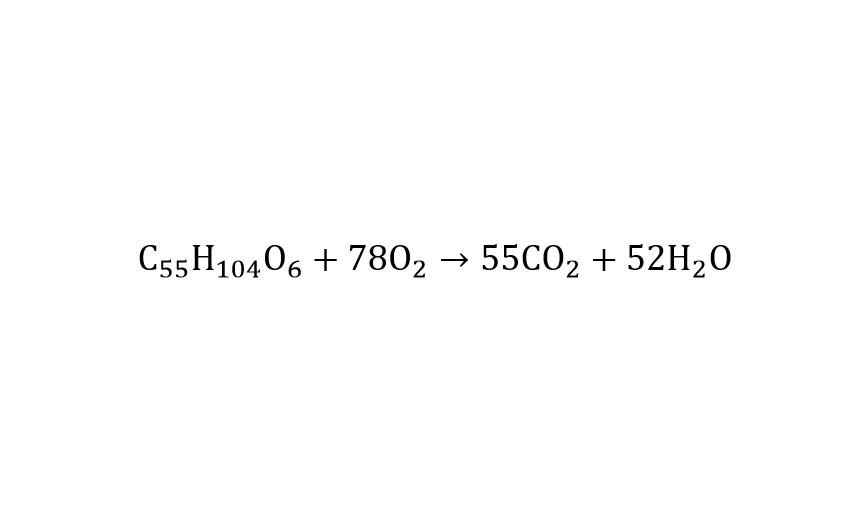
I was stumbling around YouTube the other day watching random videos to kill time. I came across a Tedx talk titled “The Mathematics of Weight Loss” by Ruben Meerman. In his talk, Ruben describes how your body metabolizes fat and the (very basic) associated chemistry. Straightforward enough (I only watched the first 5 minutes of the video).
What really got me was a video clip Ruben played during his talk. The clip shows (who I’m assuming are) random people on the street being asked something along the lines of where does weight go when you lose it? Many of the interviewees repeated the question, some said they didn’t know, some said it goes “into the ether,” others said it goes “into the crapper,” and many said it gets converted to energy.
I was almost certain Ruben selectively picked wrong answers to make his video montage; I thought that there was no way he could have actually struck out on having someone correctly answer the question.
After watching the video, I decided to ask an individual who is a pharmacist if they knew what happens to weight when you lose it (I’m intentionally using “they” as a genderless pronoun). I figured it would be a good a litmus test; if the pharmacist falters, all hope is lost.
“Hey, what happens to weight when you lose it? Like, where does the fat go?” I asked the pharmacist. The pharmacist replied: “it gets converted to energy.” I then said to the pharmacist “so the fat gets converted to energy?” The pharmacist replied: “well, energy and heat.” I then reiterated that fat was matter and restated the question, emphasizing that I was asking where the fat itself went. The pharmacist gave the same reply as before.
Because I’m a patronizing asshole, I then asked the pharmacist if they were a nuclear reactor. The pharmacist said no. I then said nuclear reactors turn matter into energy, so why weren’t they a nuclear reactor if they were converting matter to energy? The pharmacist laughed and half-jokingly said that they actually must be a nuclear reactor then.
I was incredulous. The pharmacist is an intelligent person, who on a daily basis (well, 5 days/week) administers and/or advises medication to those who are ill to get them back to good health. A pharmacist is an expert in the field of using chemical compounds to engineer the body’s many sophisticated and complex functions, but the pharmacist could not correctly tell me where the fat goes when one loses weight.
The correct answer to the question is fat is converted to carbon dioxide and water, which are expelled when you breathe (of course, water leaves in other ways too, as I’m sure you can imagine). Yep, your body is quite similar to a combustion engine (think the engine in your car): compounds containing hydrogen and carbon are reacted with oxygen to produce carbon dioxide, water, and energy. There is no conversion of matter into energy, however; the matter merely changes form through a chemical reaction (fat + oxygen -> CO2 + H2O), and when it changes form through a chemical reaction, the matter (fat) releases stored chemical potential energy. Energy is not “made,” it changes form, just like the matter does.
The difference between you and a combustion engine is your body performs the reaction through a biological pathway, whereas the combustion engine is hot enough to react the fuel directly with oxygen. Ever wonder why it’s called “burning calories”? Yeah, that’s why. Further, guess how the “calories” in food are typically calculated? They are calculated using data from a calorimeter, where food compounds are literally burned inside a device that measures the energy released.
The explanation above is, of course, a grossly simplified version of what actually goes on in your body, as this article is not intended to be a lecture on fat metabolism. If you’re interested, I suggest you either do some research on Wikipedia or watch some biology lectures on YouTube. I also want to make it explicitly clear that you cannot safely or effectively metabolize gasoline or any other fuel used in combustion engines so do not under any circumstances consume them. The combustion engine example was used for analogy sake.
I found it fascinating that so many people have no understanding of how the human body works; like, these people literally have no idea why they are even alive. I suppose some understand that if you eat too much you gain weight but if you eat less and exercise more you can lose weight, however, they probably don’t understand how this principle actually works.
I always wondered how those “get slim fast” or “diet pills” or “metabolism boosting supplements” actually made any money as they make no sense (and therefore don’t work), but now I know. People have no idea how their bodies work, and rely on infomercials or garbage social media advertising to educate them on the subject. It’s pretty sad actually. Hopefully someone will read this article and become that much less ignorant.
